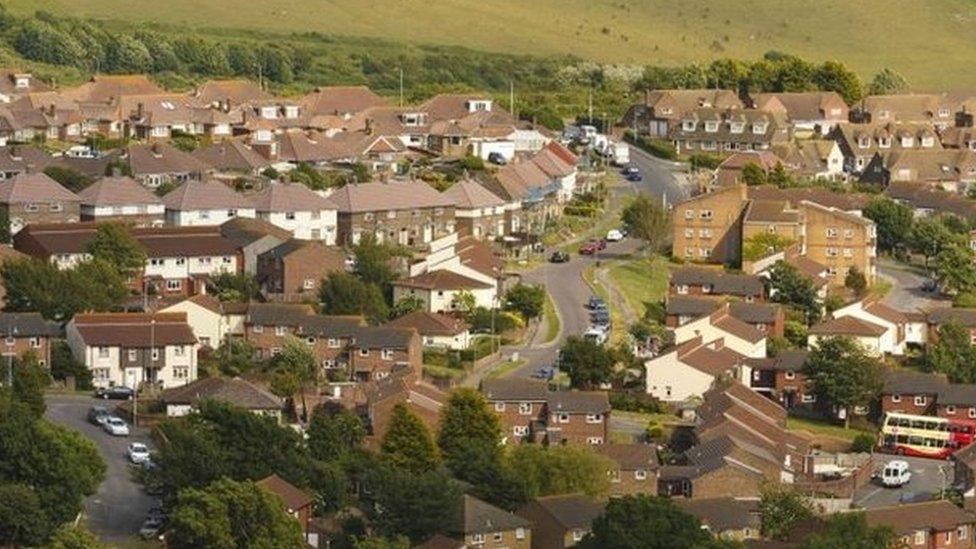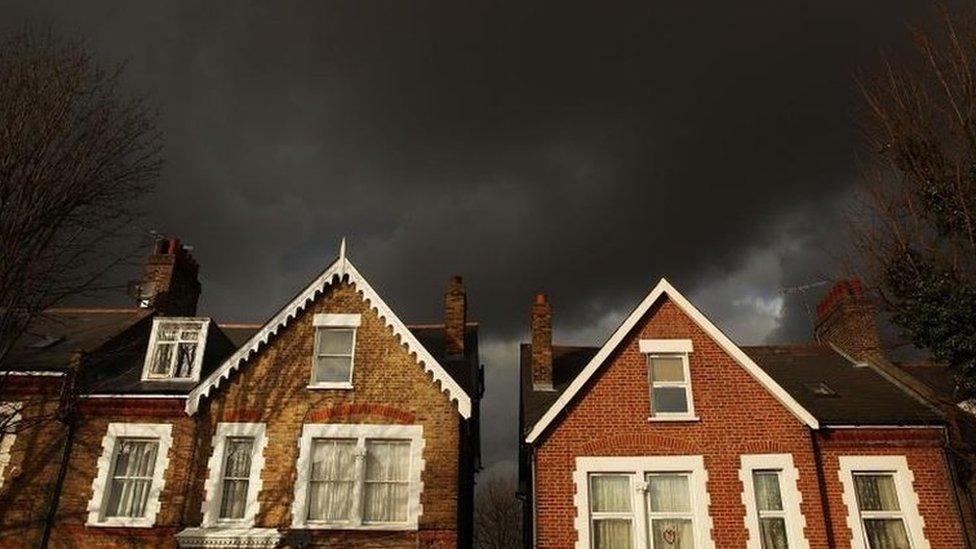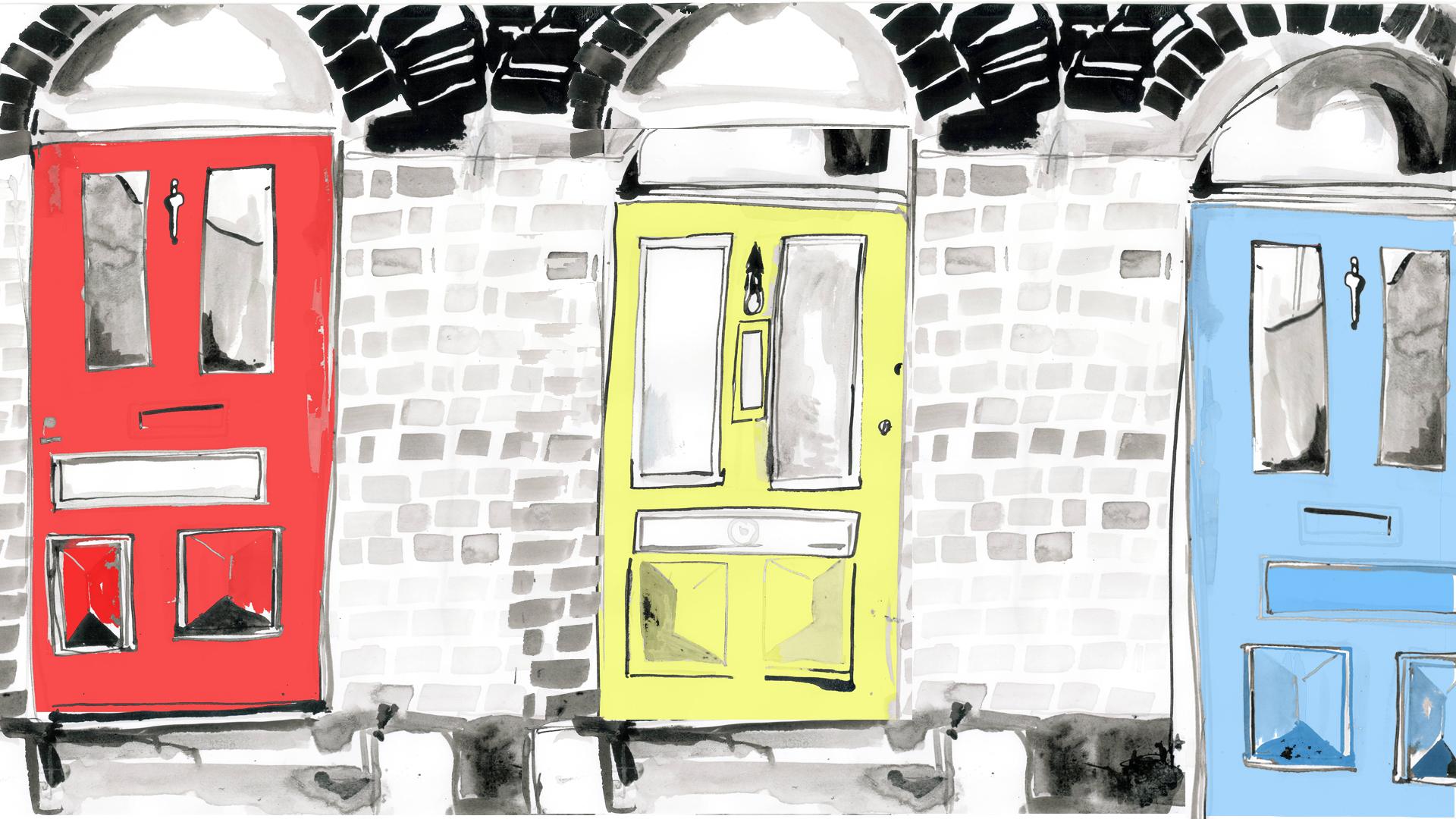Mortgage safety net 'disappearing'
- Published
- comments

Ministers should consider strengthening the safety net for homeowners struggling to pay their mortgage, a report suggests.
Help for this group introduced in response to the financial crisis will be largely withdrawn by 2022.
Academics, commissioned by lenders' trade body UK Finance, said the government should review its position.
However, mortgage applicants must now prove they have a buffer to deal with money shocks and rising interest rates.
Help to pay
Various schemes have been in place to help those facing arrears or, ultimately, repossession of their property if they face financial difficulties.
One of the major schemes is Support for Mortgage Interest, which helps those on certain benefits, owing to their low income, to receive help to meet the interest payments on a mortgage. Next year, this will be replaced by a loan.
The Universal Credit benefit system, which merges various working-age benefits, also has less mortgage support for those in low-paid or part-time work than the current system of tax credits and other welfare.
The UK Finance report, external said: "It is now evident that by 2022, there will only be limited government financial support for home buyers in distress, and that will mainly be in the form of loans for those not in work."
Instead, borrowers and their lenders would be expected to come to an arrangement on mortgage payments.
"Recognising the relatively open nature of the UK mortgage market and the continued volatility of our housing market, this report suggests it would be timely for government to review the homeowner safety net situation systematically and comprehensively," the report concludes.

Low interest rates and a less aggressive stance by lenders have meant comparatively few people have lost their homes in recent years.
Fewer homes were repossessed last year than in any year since 1982, but lenders have warned that mortgage rates will not always be so favourable.
Financial information service Moneyfacts said that even the recent rise in the Bank rate from 0.25% to 0.5% had not been felt by all variable mortgage holders, with the average rate rising by only 0.14%.
However, there is widespread expectation that mortgage rates will not get any cheaper.
In response, the UK Finance report said: "Households have become very used to enjoying low and falling mortgage rates and many have extended their secured and unsecured debt despite static wages. The Bank of England rightly reminds us that this poses significant risks."
Stricter regulation means that mortgage applicants must prove they can deal with rising interest rates, but the report suggests that this will not cover all homeowners, nor would it protect everyone who has a financial shock, such as a sudden drop in income.
It suggests that Universal Credit could be beefed up to help some of those struggling with their mortgage while in low-paid work.
- Published9 July 2020

- Published3 December 2017

- Published10 November 2017
